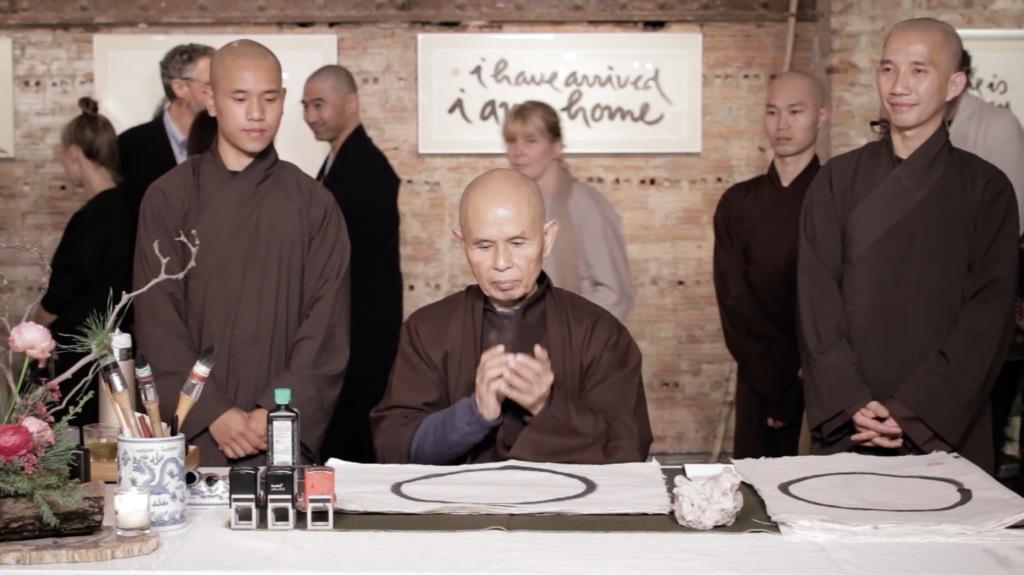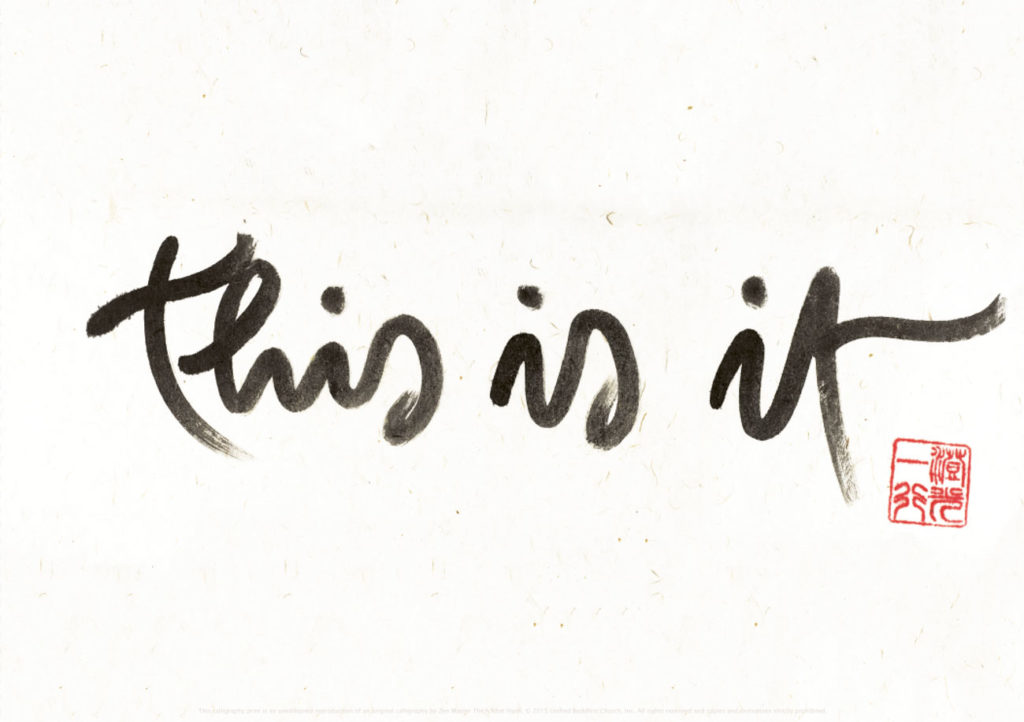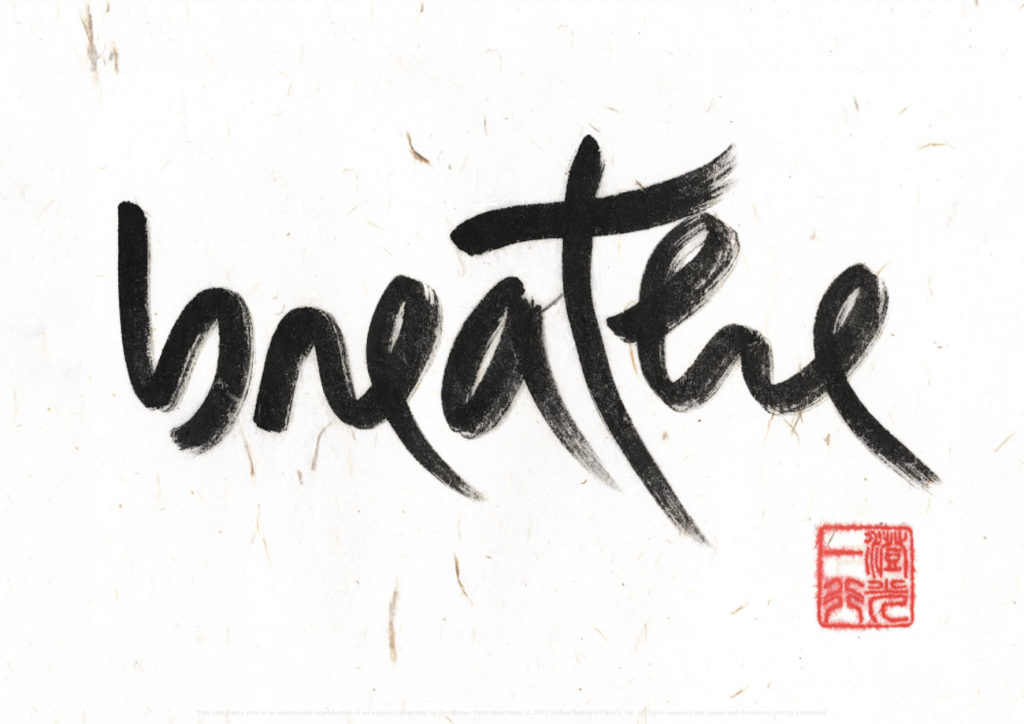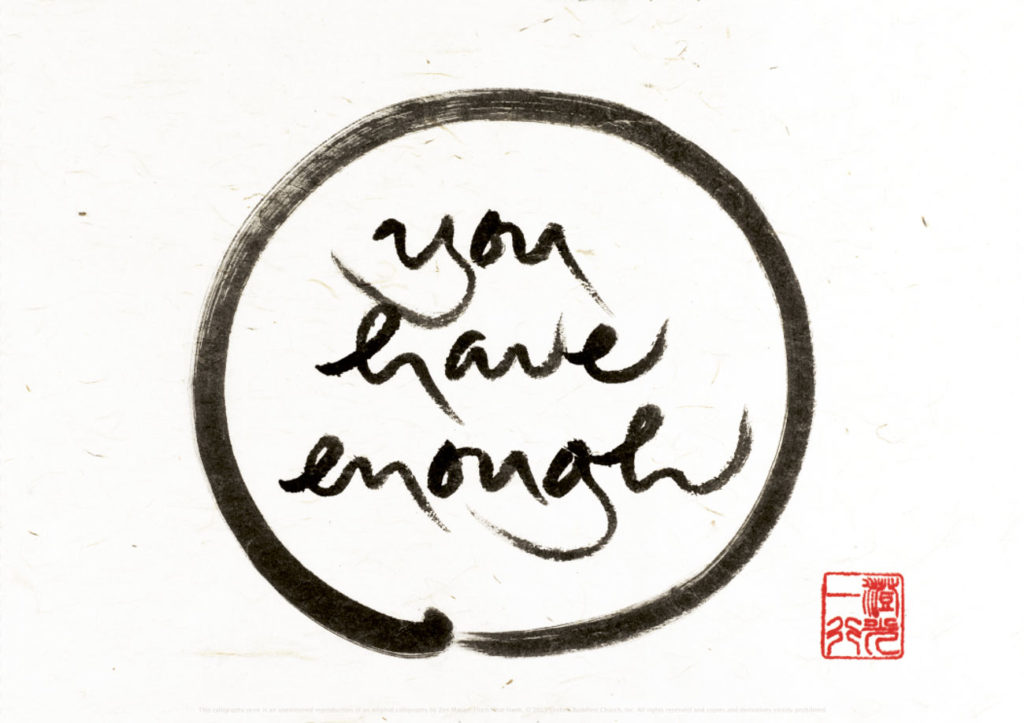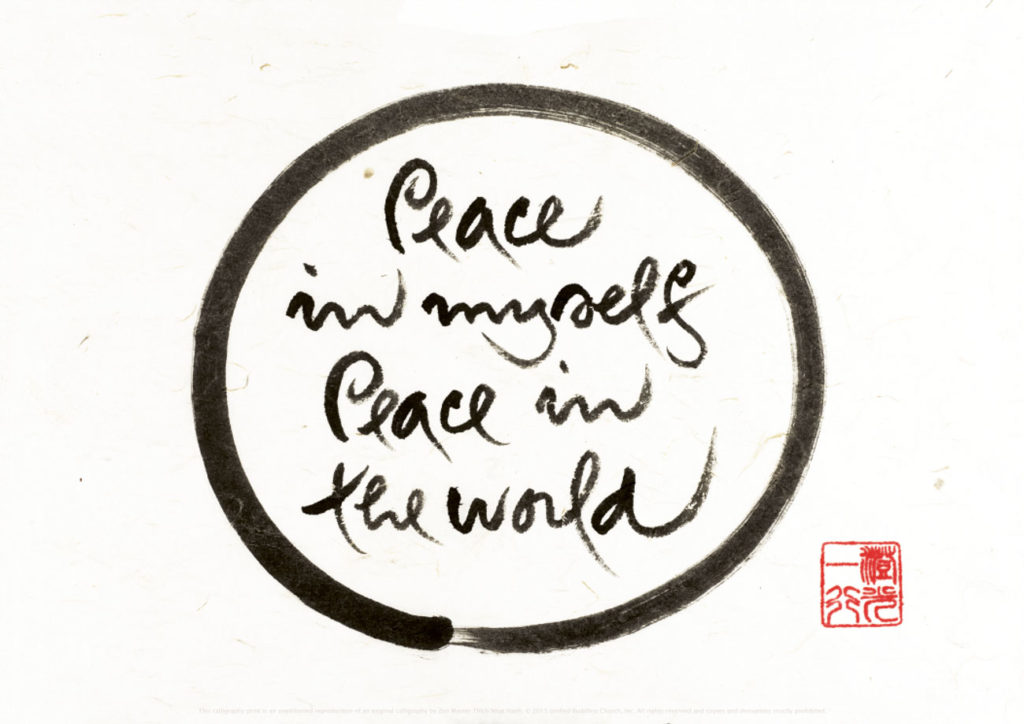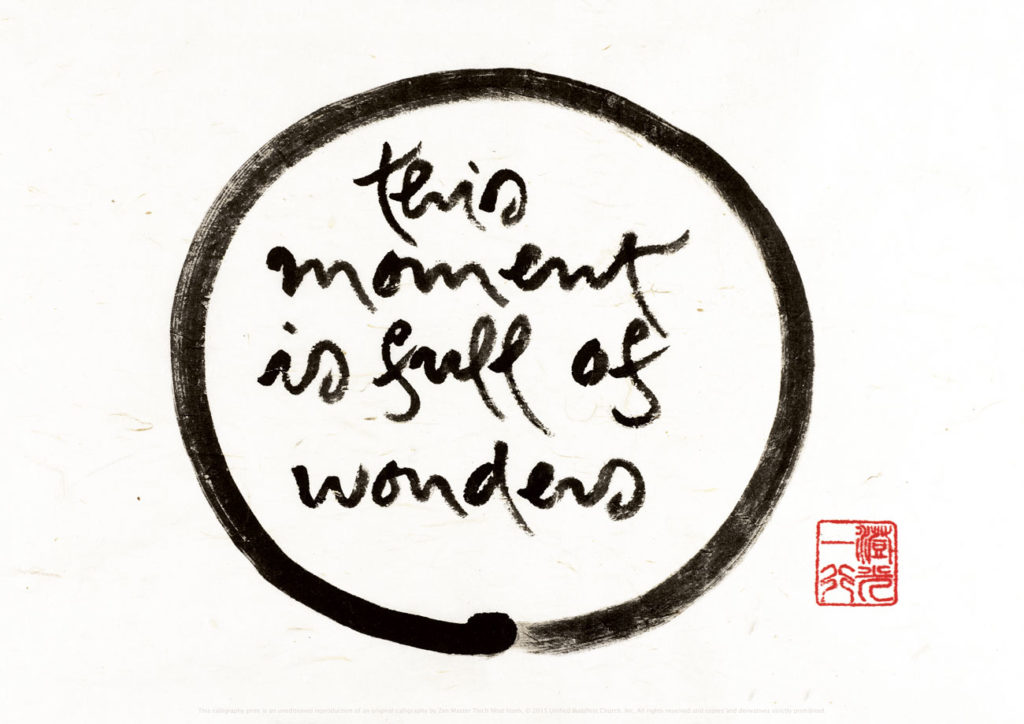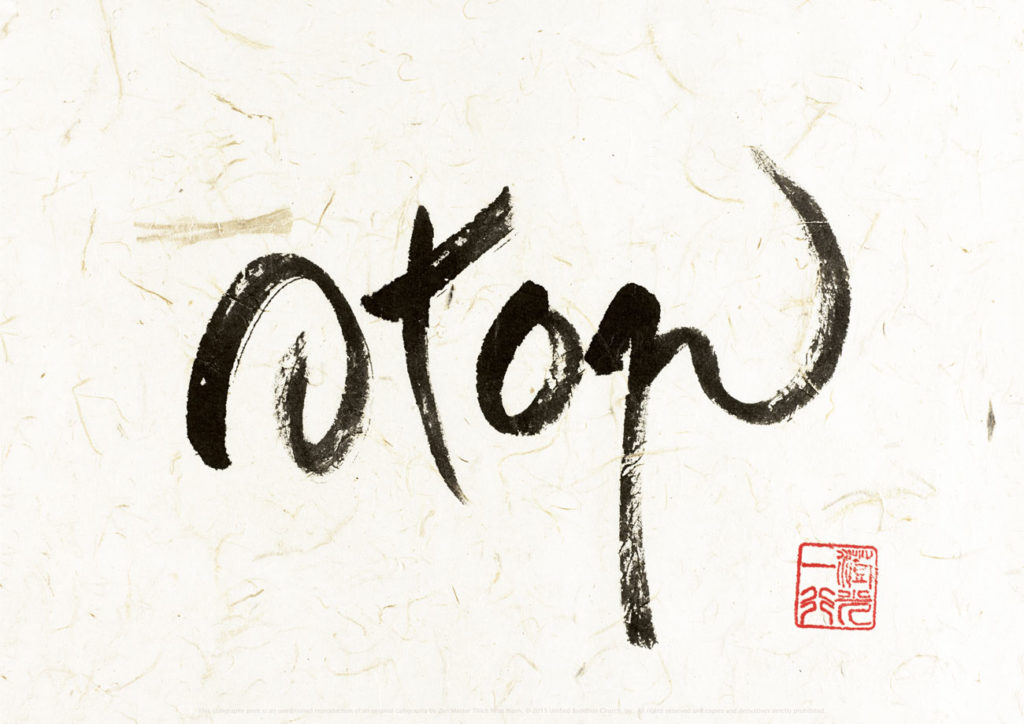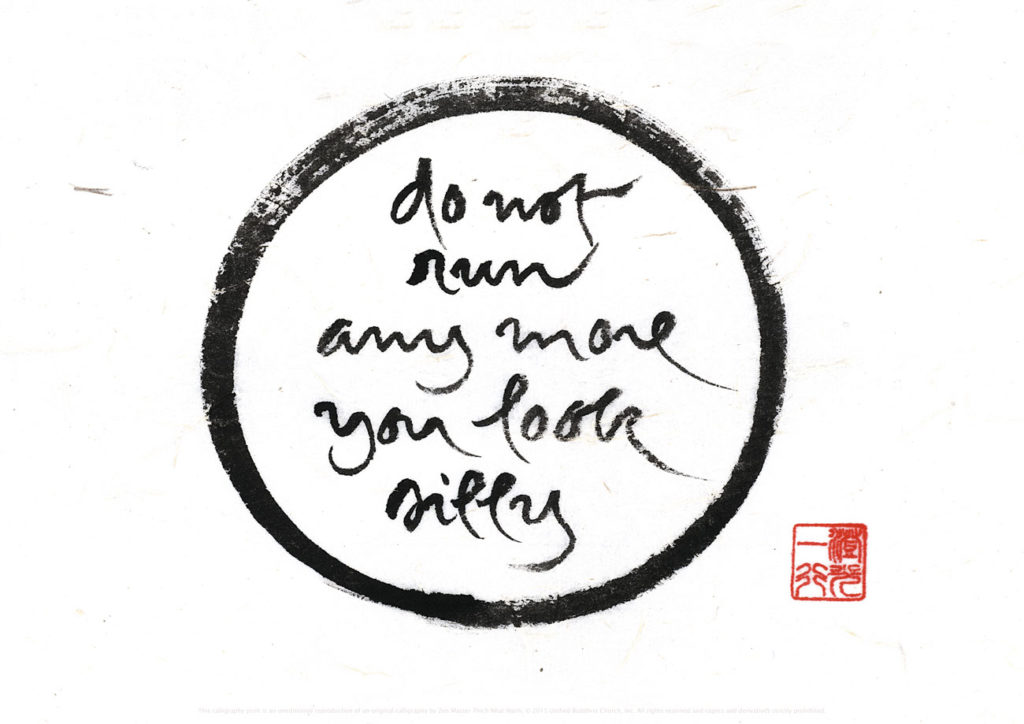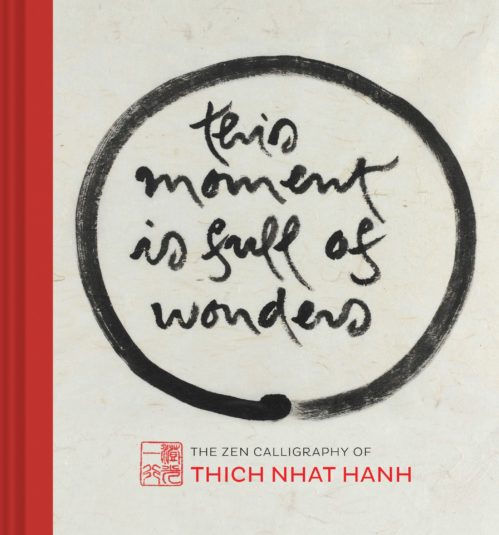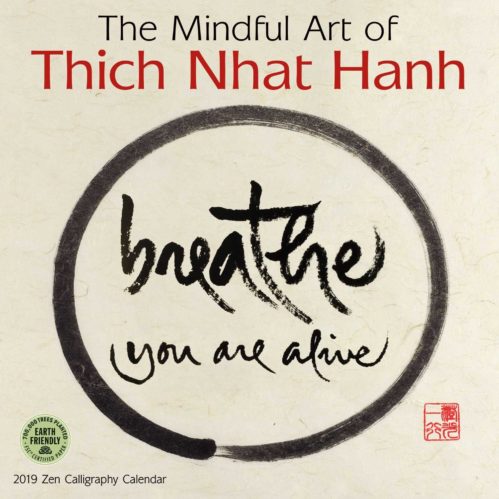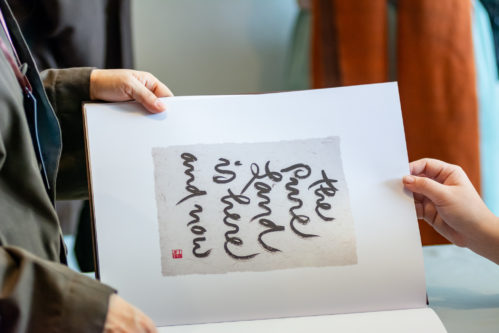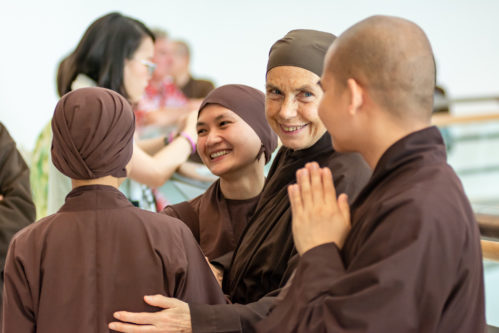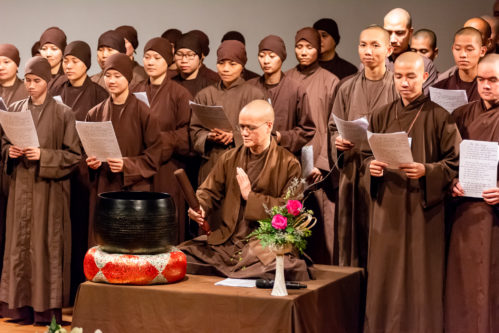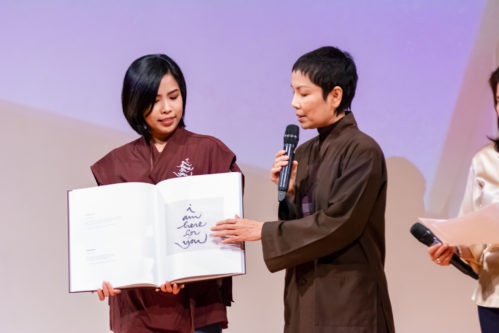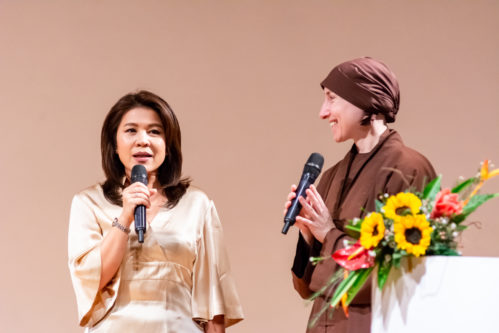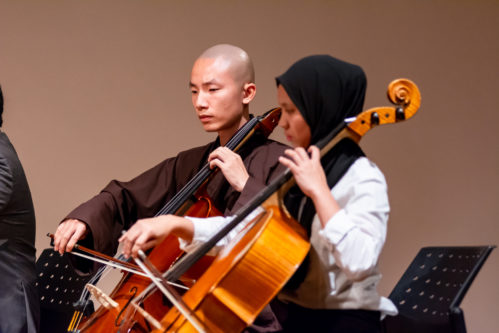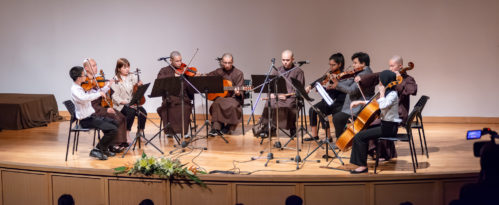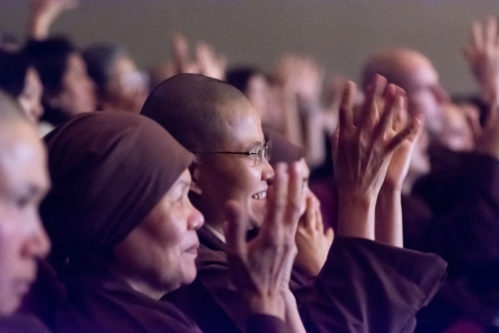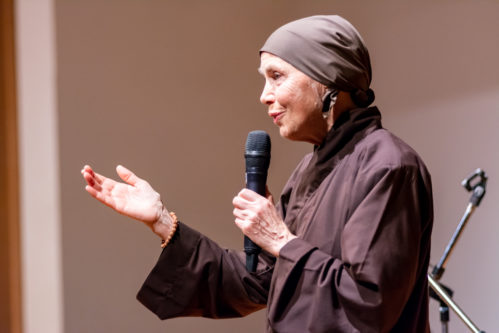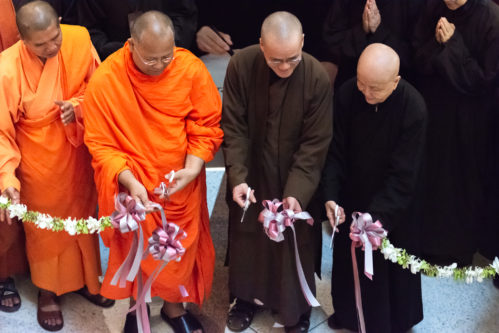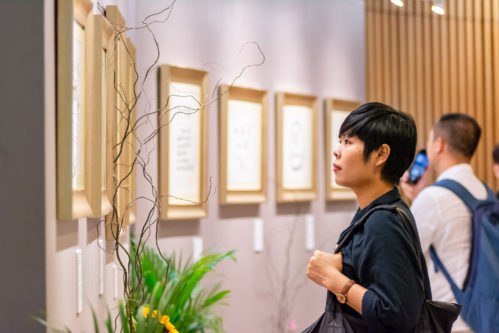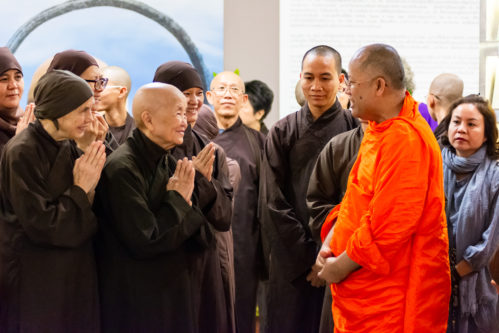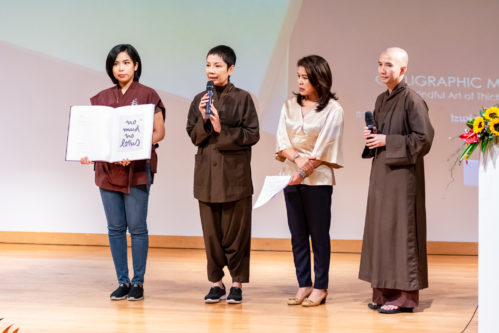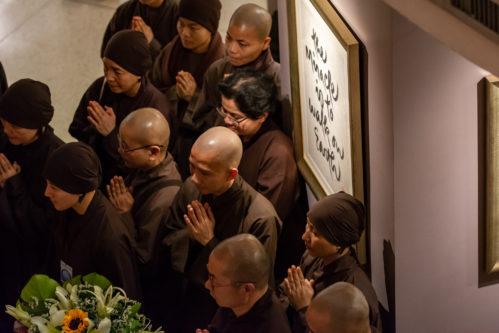Thich Nhat Hanh’s Zen calligraphies have been exhibited in North America, Europe and Asia. These eloquent ink artworks capture his insights, peace, and gentle compassion.
In my calligraphy, there is ink, tea, breathing, mindfulness and concentration. This is meditation. This is not work. Suppose I write ‘breathe’; I am breathing at the same time. To be alive is a miracle and when you breathe in mindfully, you touch the miracle of being alive.
Thich Nhat Hanh
Thich Nhat Hanh began to write calligraphies in 1994, for the titles of books, songs and articles appearing in print. Using traditional Chinese ink on rice paper, he developed a new style of Zen calligraphy in the western Roman script. Calligraphies such as “This is it,” “I have arrived, I am home” and “The bread in your hands is the body of the cosmos” began to be framed on the walls in his practice centres around the world.
The calligraphies act as a “bell of mindfulness” for the viewer, reminding us to arrive in the here and now, and touch the wonders of life.
The purpose of art is to enrich our lives. Thich Nhat Hanh is an artist who cleanses our hearts and souls.
Mr Yeung Chun-Tong, Director, Hong Kong University Museum and Art Gallery
Discover more about Thay’s Calligraphy
How to order prints
His original calligraphies have become collectors’ items. High-quality reproduction prints are available in his monasteries and on the plumvillage.shop and Parallax Press website, with proceeds going to support his community and the creation of mindfulness practice centers around the world.
Podcast: The Way Out Is In
Listen to Brother Phap Huu and Jo Confino talk about Thay’s deeply meaningful calligraphies.
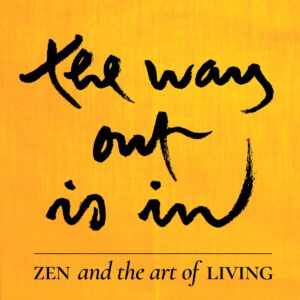
Deep Reflection: The Calligraphy of Zen Master Thich Nhat Hanh (Episode #23)
Books and Calendars – Be inspired
Exhibitions
Calligraphy trivia
- Thich Nhat Hanh has created over 10,000 original calligraphies
- He used Chinese ink on rice paper sourced in Hong Kong and Vietnam, and brushes from Japan and France
- Every calligraphy contains tea from his cup, which he poured into the block to mix the ink
- Thich Nhat Hanh breathes in for the first half of the “enzo” circle, and out for the second half.
- Vietnamese temples have their own tradition of calligraphic art in the Roman Script. Thich Nhat Hanh’s new style builds on this tradition with strokes that are distinctively bold, simple and free, incorporating Modern European elements, such as the gentle running ‘r’ from the French.
2021 – Ho Chi Minh City and Ha Noi, Vietnam
March and April at Hai An Bookstore and Vietnam University of Fine Arts.
2019 – Bangkok, Thailand
January 23 – February 17, at Bangkok Art and Culture Centre (see Bangkok Post).
2013 – New York City, USA
US premiere exhibit at ABC Home on Broadway.
2013 – Bangkok, Thailand
April 2-12, at Bangkok Art and Culture Centre (see Bangkok Post).
2012 Plum Village, France
July-August, at Son Ha Temple, Plum Village Practice Center
2012 Germany
August 2012, at the European Institute of Applied Buddhism (EIAB), near Cologne.
2011 Vancouver, Canada
August 6-11, at the Asian Centre Auditorium, University of British Columbia (see Vancouver Sun).
2011 Taiwan
April 8-23, at Dharma Drum Mountain’s World Center for Buddhist Education, New Taipei City. A joint Exhibition of Chinese Calligraphy Works of Master Thich Nhat Hanh and Master Sheng Yen, curated by Dr. Eva Yuen.
2010-2011 Hong Kong
November 2 – January 9, at Hong Kong University, curated by Mr. Yeung Chun Tong & Dr. Eva Yuen. Co-presented by the University Museum and Art Gallery, The University of Hong Kong, and the European Institute of Applied Buddhism (EIAB), Germany.


